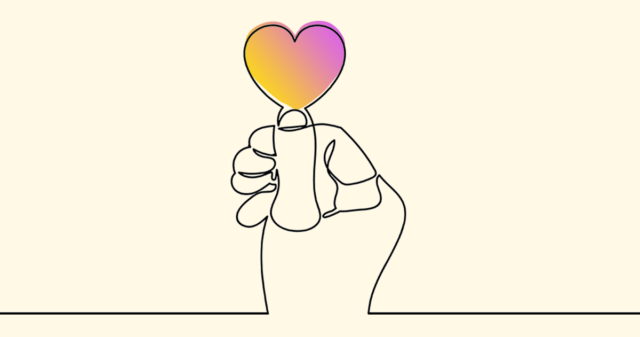Bipolar Disorder
Bipolar Defined
Formerly known as manic-depressive illness, bipolar disorder causes unusual shifts in mood, energy, activity levels, and the ability to carry out day-to-day tasks. People experiencing these shifts often do not recognize their likely harmful or undesirable effects. Approximately 45 million people worldwide suffer from bipolar disorder at any given time. Although the age of onset of bipolar disorder varies greatly, most cases begin when individuals are 15 to 19 years old.
There are three types of bipolar disorder, all of which involve changes in moods that range from periods of elation, irritability, and energy (known as manic episodes) to periods of sadness, indifference, and hopelessness (known as depressive episodes). Less severe panic periods are known as hypomanic episodes. Sometimes a person experiences symptoms of bipolar disorder that does not match any of the three categories, in which case it is referred to as “other specified and unspecified bipolar and related disorders”.
Bipolar I
- Defined by manic episodes that last at least 7 days, or by manic symptoms that are so severe that the person needs immediate hospital care
- Depressive episodes usually occur as well, typically lasting at least 2 weeks
- Episodes of depression with mixed features (having depressive symptoms and manic symptoms at the same time) are also possible
Bipolar II
- Defined by a pattern of depressive episodes and hypomanic episodes, but not the full-blown manic episodes that are typical of Bipolar I Disorder
Cyclothymic Disorder (Cyclothymia)
- Defined by periods of hypomanic symptoms as well as periods of depressive symptoms lasting for at least 2 years (1 year in children and adolescents). The symptoms do not need to meet the diagnostic requirements for a hypomanic episode and a depressive episode.
Researchers generally agree that there is no single cause of bipolar disorder; it is likely that many factors contribute to a person’s chance of having the illness. Some studies suggest that people with certain genes are more likely to develop bipolar disorder. Environmental stressors can also play a role; by disturbing the sufferer’s sleep-wake cycles – and in turn, their brain chemistry– stressful life events may bring on manic, hypomanic, or depressive episodes.
Without proper treatment, people with bipolar disorder may develop severe mania and/or depression. Although symptoms may vary over time, bipolar disorder usually requires lifelong treatment. If bipolar disorder is recognized early, it can be treated and managed well.
Symptoms
Bipolar disorder is typically diagnosed during late adolescence or early adulthood. Occasionally, bipolar symptoms can appear in children. The condition can also first appear during a woman’s pregnancy or following childbirth. During an episode, symptoms last every day for most of the day. Episodes may also last for longer periods, such as several days or weeks.
People having a manic episode may:
- Feel ‘up’, ‘high’, irritable or touchy
- Feel wired
- Have a decreased need for sleep
- Have a loss of appetite
- Talk very fast about many different things
- Experience racing thoughts
- Think they can do many things at once
- Engage in risky behavior, such as eating and drinking excessively, spending or giving away a lot of money, or having reckless sex
- Feel like they are unusually important, talented or powerful
People having a depressive episode may:
- Feel ‘down’, empty, worried, or hopeless
- Feel slowed down or restless
- Have trouble falling asleep, wake up too early, or sleep too much
- Experience increased appetite and weight gain
- Talk very slowly, feel like they have nothing to say, or forget a lot
- Have trouble concentrating or making decisions
- Feel unable to do even simple things
- Have little interest in almost all activities, a decreased or absent sex drive, or anhedonia (inability to experience pleasure)
- Think about death or suicide
Effects
Some bipolar disorder symptoms are similar to those of other brain health conditions, which can make diagnosing a person challenging. However, many people who have bipolar disorder may also have another brain health condition, such as an anxiety disorder, ADHD, substance use disorder, or eating disorder. People with bipolar disorder have an increased chance of having thyroid disease, migraine headaches, heart disease, diabetes, obesity, and other illnesses.
The wide range of symptoms that someone with bipolar disorder may experience can also affect their loved ones. Their ability to function as a family member or friend may be impacted, increasing stress on their relationships.
If You Are In Crisis
Call the toll-free National Suicide Prevention Lifeline at 1-800-273-TALK (8255), available 24 hours a day, 7 days a week. The service is available to everyone. All calls are confidential. Contact social media outlets directly if you are concerned about a friend’s social media updates or dial 911 in an emergency.
If you are thinking about harming yourself or thinking about suicide:
- Tell someone who can help right away.
- Call your licensed mental health professional if you are already working with one.
- Call your doctor or health care provider.
- Go to the nearest hospital emergency department or call 911.





